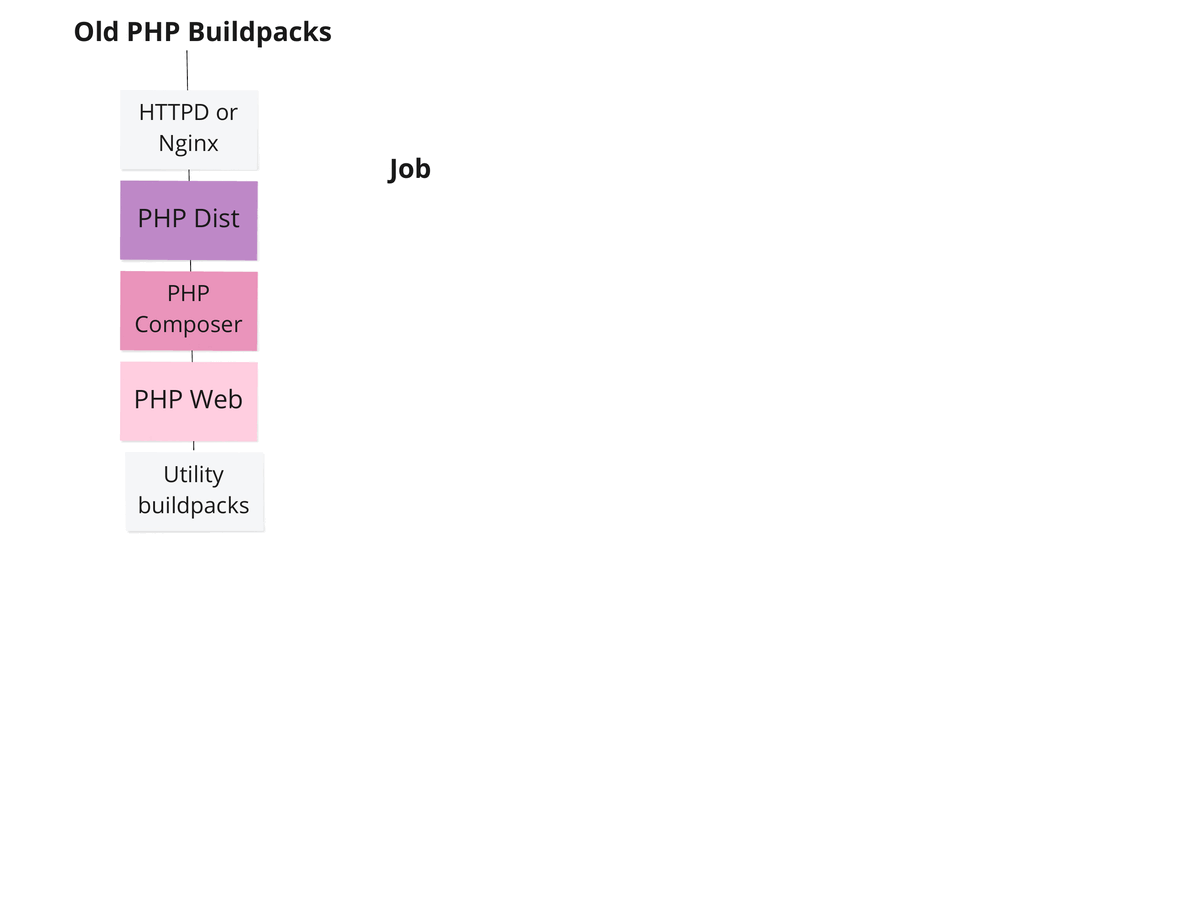
Paketo Buildpacks | Blog
Reintroducing the PHP Buildpack
There’s a new and exciting development in the Paketo Buildpacks project! The Paketo PHP Buildpack has been fully re-architected and is ready to make containerizing PHP applications simple and transparent. With the rearchitecture, the same base set of functionality is supported as in the original PHP buildpack, but the buildpacks have been modernized using the newest Paketo tooling and modularized to separate concerns into individual buildpacks.
What’s new?
Breaking it down
The rearchitecture has made it vastly easier for maintainers and contributors to add new functionality to the language family, by breaking down what used to be three larger buildpacks, into 10+ new buildpacks responsible for single parts of the build process. This may sound like a lot of new buildpacks, but small lighter-weight buildpacks are actually what we strive for in the project. This concept is well-described in the Paketo Buildpacks Philosophy Part 1 blog post.
The GIF below gives an overview of how the buildpacks have been split up based
off of their main job. The new buildpacks are split into three order groups,
one for the Nginx use case, one for the HTTPD use case, and one for the PHP
built-in server use case. The order groups in the buildpack can be found in the
PHP buildpack buildpack.toml
file.

API Upgrades
The buildpacks have also been re-written to leverage the newest Paketo tooling, such as the packit library. Using the packit library allows the buildpacks to run on the latest versions of the upstream Cloud Native Buildpacks specifiction to make sure our buildpacks support the full range of new features in the buildpacks ecosystem. The new PHP buildpacks are built on Buildpack API 0.7, as opposed to the API 0.4 that the old buildpacks used.
SBOM support
Because of the API upgrade, the buildpacks now include Software Bill of Materials (SBOM) support. The SBOM provides metadata about the dependencies associated with your application image, and can be used for vulnerability scanning. Check out the Paketo documentation for how to access the SBOM.
Maintaining the same use cases
If you’re not already acquainted with the previous version of the buildpack PHP buildpack, the following use cases are supported:
- Build PHP apps that are served with HTTPD (sample app example)
- Build PHP apps that are served with Nginx (sample app example)
- Build PHP apps that are served the PHP Built-in Server (sample app example)
- Leverage the PHP FastCGI Process Manager (FPM) to run alongside servers (Nginx and HTTPD samples showcase this)
- Build apps that use Composer as an application level package manager (sample app example)
- Configure and run PHP session handlers for Redis and Memcached instances (sample app example)
The main difference in the user experience is that support for setting
configuration through a buildpack.yml has been removed in favour of
environment variable configuration. The configuration options are now detailed
in the Paketo PHP How-To documentation,
with more in-depth details of buildpack behaviour available in the Paketo PHP
Buildpack Reference
documentation.
Accessing the new release
The new PHP buildpack has been released as v1.1.0 (yes, we found a bug in v1.0.0 😝) and is included in the latest Paketo Full Builder. You can also find it on Dockerhub and on the Buildpacks Registry.
Try it out with sample apps
The Paketo Samples repository is a great resource for understanding basic applications that can be built with Paketo buildpacks. The PHP sample apps contain examples of each use case, and are a great starting point to test out how the buildpacks work.
Learn More
-
Want to learn more about using the PHP Buildpack? Check out our docs.
-
Feature request? Open an issue.
-
Want to chat with maintainers? Join
#phpin Paketo slack. -
Want to contribute a bug fix (or buildpack!)? Learn more about our open source community.
Thanks for reading!
